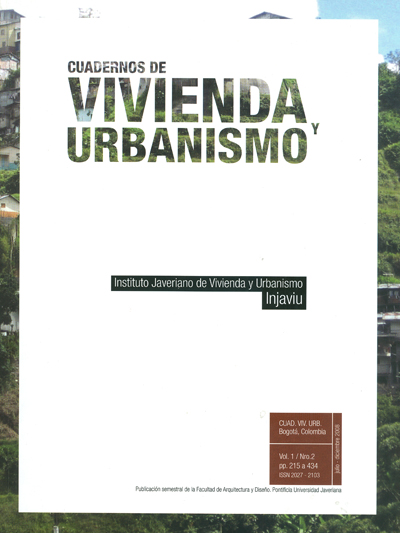Abstract
This study identifies and analyzes how the social representations of two Colombian Pacific Coast communities, the neighborhood of Brisas del Poblado in the municipality of Quibdo and the neighborhood of Candamo in the municipality of Tumaco, adjust and organize their individual, family, and community behaviors in the disposal of their excrements. This research begins from the installation of dry ecological toilets (ecoses) by two NGOs in Quibdo and Tumaco. The study determines that it is necessary to understand the communities’ way of thinking before commencing intervention projects on basic sanitation and hygiene promotion. This will allow promoters to design an educational process on health incentives and initiate processes that aim to mediate among the utilization of traditional, new, and different methods.
This journal is registered under a Creative Commons Attribution 4.0 International Public License. Thus, this work may be reproduced, distributed, and publicly shared in digital format, as long as the names of the authors and Pontificia Universidad Javeriana are acknowledged. Others are allowed to quote, adapt, transform, auto-archive, republish, and create based on this material, for any purpose (even commercial ones), provided the authorship is duly acknowledged, a link to the original work is provided, and it is specified if changes have been made. Pontificia Universidad Javeriana does not hold the rights of published works and the authors are solely responsible for the contents of their works; they keep the moral, intellectual, privacy, and publicity rights.
Approving the intervention of the work (review, copy-editing, translation, layout) and the following outreach, are granted through an use license and not through an assignment of rights. This means the journal and Pontificia Universidad Javeriana cannot be held responsible for any ethical malpractice by the authors. As a consequence of the protection granted by the use license, the journal is not required to publish recantations or modify information already published, unless the errata stems from the editorial management process. Publishing contents in this journal does not generate royalties for contributors.


